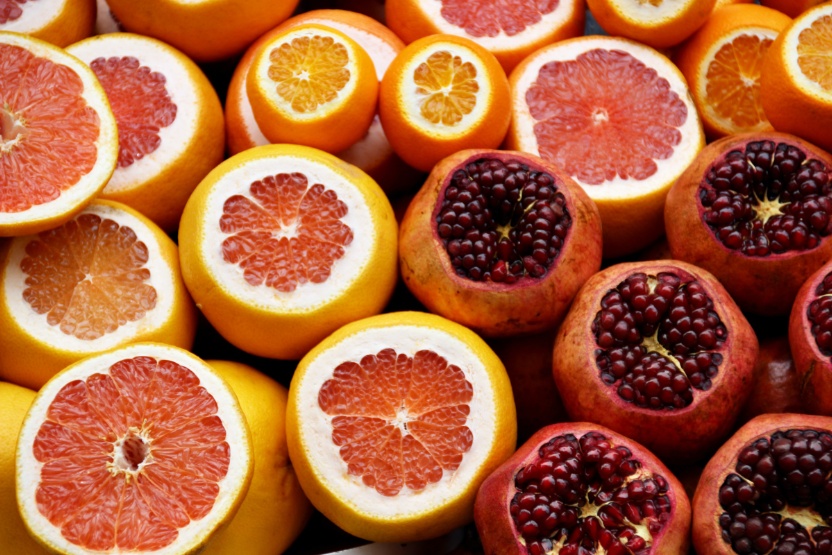Vitamin D3 and K2 supplements have taken the world by storm! Vitamin D has the lion’s share of all the attention lately, but few people know about the significance of vitamin K2.
When using supplements to enhance bone health, boost your immune system, heal wounds, and safeguard cardiovascular health, it is advised that vitamin D3 be coupled with vitamin K2.
This article will discuss the health benefits of both vitamins and why they are better together.
What are Vitamin D3 and Vitamin K2?
Vitamin D3 is called the sunshine vitamin since it is produced by your skin in reaction to sunlight. This fat-soluble vitamin performs several activities in your body, like calcium absorption and helping your immune system function correctly.
A lack of this vitamin may lead to various health problems, including osteomalacia (bone weakening) and osteoporosis (bones becoming fragile). Salmon, sardines, egg yolk, fortified milk, yoghurt, cereals, and orange juice are the best sources of vitamin D3.
Another fat-soluble vitamin is vitamin K2, commonly known as long-chain Menaquinone (MK7).
Because of its potent effects, MK7 is regarded as the greatest source of vitamin K. Fermented, dairy, and animal products like cheese are the primary dietary sources of this vitamin.
Benefits of Vitamin D3
Let’s dive right into the benefits of Vitamin D3:
Strengthens Bones
Vitamin D is required for healthy bones and muscles. Without Vitamin D, our bodies cannot absorb calcium, which is needed for bone health.
Children with low Vitamin D levels develop rickets, a disorder that causes bone weakening, bent legs, and other skeletal malformations such as stooped posture.
Defence Against Infections
Vitamin D may reduce the likelihood of severe flu and COVID-19 infections. However, according to research, low vitamin D levels can lead to acute respiratory distress syndrome.
People with low vitamin D levels might be more vulnerable to infections and autoimmune disorders such as rheumatoid arthritis, type 1 diabetes, and inflammatory bowel disease.
Reduce Stress and Depression
This vitamin is essential for both mental and physical health. For example, taking vitamin D supplements may help relieve depression symptoms. It can also help with seasonal affective disorder (SAD).
Fortunately, getting enough vitamin D is easy. You can take supplements, spend more time outdoors, or eat vitamin D-rich foods.
Weight Loss
Some studies have shown that including vitamin D3 in your diet is helpful during weight loss—an increase in vitamin D3 and calcium functions as an appetite suppressant in your body.
Researchers discovered that women who took vitamin D3 supplements lost more weight, dropping 7 pounds (3.2 kg) more than women who did not supplement with vitamin D3.
Improves Heart Function
Vitamin D3 lowers the risk of heart failure and improves heart function in people with weak heart muscles. According to Heart.org, D3 may also help fight:
- heart attacks
- strokes
- cardiovascular disease
- and high blood pressure
Benefits of Vitamin K2
Vitamin K1 and vitamin K2 are the two main varieties of vitamin K. Both forms are essential for bone and heart health and hemostasis. Down below, we have listed five benefits of Vitamin K2:
Strong Bones
Getting enough vitamin K2 in your diet may help you keep your bones strong and reduce your chance of getting osteoporosis. Calcium is required by your body to make your bones thick and strong. Your bones might become brittle and weak if you have low bone density.
Consuming foods high in calcium, vitamin K2, and protein will provide your body with the building blocks it needs to create and maintain healthy bones.
Healthy Heart
Getting enough vitamin K benefits your heart. Low vitamin K levels have been related to high blood pressure. Some evidence suggests that taking vitamin K supplements might help lower blood pressure, lowering the risk of heart attacks and stroke.
Dental Health
Vitamin K2 may impact oral health, according to researchers. However, no human studies have tested this.
Based on animal research and the role vitamin K2 plays in bone metabolism, it’s believed that this vitamin also influences dental health, such as transporting calcium to your bones and promoting new dentine formation under your teeth’s enamel.
Menopause Support
K2 supplementation in women’s diets aids in the prevention of bone issues pre- and post-menopause. In addition, taking K2 supplements will help strengthen your bones that weaken during menopause.
Most females reach menopause between 45 and 55, when oestrogen levels fall, resulting in rapid bone loss. Within the first ten years following menopause, women lose 40% of their spongy inner bone and 10% of their hard bone.
Assists with Ageing
Low vitamin K2 intake has been linked to some elderly illnesses. As a result, taking K2 lowers the danger of calcium-related heart problems. In addition, scientists believe that proper supplementation of MK7 in older people’s diets reduces the risk of Alzheimer’s disease.
K2 has even more benefits and side effects that you can learn about in our dedicated article.
Vitamin D3 and K2 Are Better Together
Vitamin D3 and K2 are a match made in heaven. These two vitamins have a ‘Batman and Robin’ effect: they’re great on their own but much better when combined.
They impact on controlling your blood calcium level, which maintains the health of your blood vessels and bones. Both vitamins are fat-soluble and collaborate to help your body absorb calcium by activating beneficial proteins.
Vitamin D3 and K2 can be bought as a single supplement, so there is no need to purchase separate products.
Consider Supplementing With Fats
This power combo should be taken with high-fat foods to maximise absorption. According to research, taking vitamin D3 and K with main meals resulted in a 50% boost in blood vitamin levels after just two months.
In another study, 50 older people received vitamin D and K with a high-fat lunch and had a 32% boost in blood vitamin levels only 12 hours later.
Potential Side Effects
Many individuals who take this supplement have no or very moderate side effects. However, contact your doctor or seek medical attention if you are vomiting or having an upset stomach.
Some vitamin D3 and K2 supplements contain iron, which has fatal consequences in children under the age of six or for those who are allergic.
If your vitamin D3 and K2 supplement contains iron, get medical help when you experience the following:
- constipation
- green stool colour
- diarrhoea
- and a pain in the abdomen
Buying the Right Vitamin D and K2 Supplements
We suggest Vitamin D3 Ultra Absorb with added Vitamin K2, Zinc, Boron and MCT Oil supplement. Because these nutrients are fat-soluble, combining them with MCT, as with this supplement, enhances nutritional absorption in the body.
You can learn more about why believe zinc and boron are a good match for vitamin D in separate articles.



